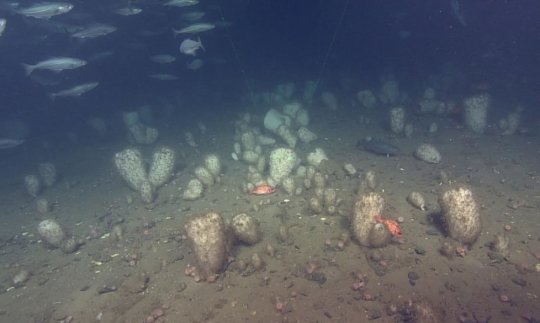[ad_1]
The glass sponge has persisted on the Scotian Shelf for decades, despite strong historical variability in water conditions and extremely limited protection by conservation efforts, according to a study published October 24 in the open-access journal PLOS ONE by Lindsay Beazley of the Bedford Institute of Oceanography in Nova Scotia, Canada, and colleagues. The authors suggest that the results may give insight into how this species will respond to future climate change.
Emerald Basin on the Scotian Shelf off Nova Scotia is home to a globally unique aggregation of the glass sponge Vazella pourtalesi. In 2009, Fisheries and Oceans Canada implemented two sponge conservation areas to protect against bottom fishing activities. To determine the degree to which the sponge grounds remain unprotected, Beazley and her colleagues modelled the presence probability and predicted range distribution of V. pourtalesi on the Scotian Shelf.
Although the two sponge conservation areas protect some of the more significant concentrations of V. pourtalesi, more than 99% of its predicted distribution remains unprotected. The V. pourtalesi sponge grounds are associated with a warmer and more saline water mass compared to the surrounding shelf. Reconstruction of historical bottom temperature and salinity in Emerald Basin revealed strong variability across decades. The researchers show that this species has persisted in the face of this climatic variability, and recommend future work to understand the impacts of climate change on this species and to develop appropriate measures for its continued conservation.
The authors add: “We show that the unique glass sponge Vazella pourtalesi off Nova Scotia, Canada is distributed in an area that experiences strong multi-decadal variability in temperature and salinity. The persistence of this species in the face of this climatic variability possibly indicates how it will response to future climate change.”
Story Source:
Materials provided by PLOS. Note: Content may be edited for style and length.
[ad_2]















